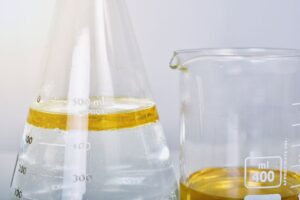Water quality cannot be underestimated; one key metric used to assess it is Total Dissolved Solids (TDS). We will answer the question “How Much Drinking Water TDS Good For Health?,” by exploring the health benefits of low TDS water, the risks posed by high TDS levels on human health, and how to test them yourself home.
Understanding TDS in Drinking Water
What Is TDS?
Total Dissolved Solids (TDS) are the total of all organic and inorganic materials present in a liquid in molecular, ionized, or micro granular suspension form; for instance, in drinking water this includes minerals, salts, metals and any impurities present.
How much water TDS good for health?
According to both the World Health Organization (WHO) and the United States Environmental Protection Agency (EPA), safe TDS levels in drinking water for human consumption should fall between 150-350 parts per million; an optimal range is believed to provide essential minerals without risk to human health.
Benefits of Low TDS Water in terms of health
Improved Taste and Odor
Low TDS water tends to be free from contaminants and impurities that could alter its taste or odor, creating more refreshing and enjoyable water drinking experience.
Improve Hydration and Mineral Balance Water with low TDS levels is often better at hydrating our bodies because its cells can absorb more readily. Furthermore, such water typically contains essential minerals like calcium and magnesium for wellness and well-being.
Risks of High TDS Water for Human Health
Mineral Overload
Consuming excessively high TDS levels in drinking water can lead to an excess concentration of minerals like sodium, potassium, and magnesium in your system – leading to health complications like hypertension and kidney stones. Prolonged consumption can create an imbalance that eventually manifests into health issues like hypertension and kidney stones.
Presence of Harmful Contaminants
High TDS water can indicate the presence of potentially harmful contaminants, including heavy metals, nitrates and fluoride. Such substances are known to pose health hazards ranging from digestive tract issues to neurological concerns for human beings.
Testing TDS Levels at Home
A TDS meter is an accessible, affordable and efficient tool for monitoring the TDS levels of drinking water at home. Simply dip its probe into any water sample to get an instant reading in parts per million (ppm).
Understanding TDS levels’ role in drinking water is vital to maintaining good health. Aim for TDS levels within the recommended range (150-350 ppm) to reap its health effects and avoid potential risks associated with higher TDS water sources. Testing your TDS levels regularly with a TDS meter can keep you up-to-date and make informed decisions regarding your water source.




